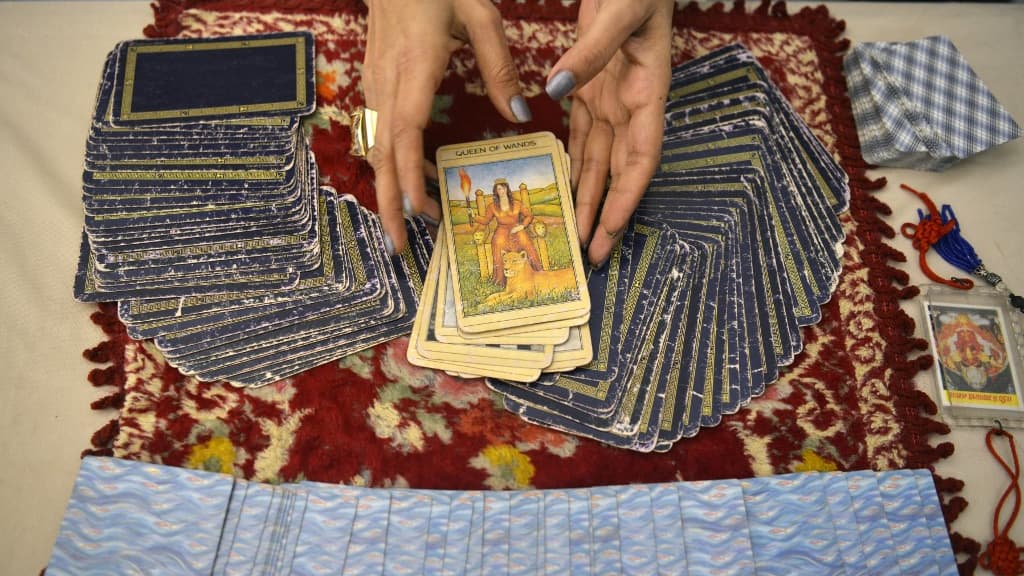Young people believe less and less in science. And they are increasingly permeable to alternative medicine, conspiracy theories and pseudo-science. Several voices believe that the modes of information, via social networks, and the gradual disappearance of scientific and technological culture in education are responsible for this paradigm shift.
The proportion of young people who have a positive view of science has dropped by 22 points in 50 years! According to an Ifop survey for the Reboot and Jean Jaurès foundations, entitled “TikTok generation, toctoc generation?”, carried out among 11-24 year olds, 1 in 6 young French people think the Earth is flat and 1 in 4 doubt the theory of evolution. In addition, 25% of them believe that it is “safe to abort with herbal products” and 19% believe that the Egyptian pyramids were built by extraterrestrials.
Today’s youth is more reluctant to scientific consensus and turns to other beliefs: pseudo-sciences, astrology, cartomancy or even conspiracy theories. Today, only 1 in 3 young people believe that “science brings more good to people than harm”, against more than half in 1972. The proportion judging that its contribution to humanity is more harmful than positive has tripled in 40 years.
Get informed via social networks
Regarding the news, 31% of young people believe that the result of the 2020 US election was skewed to prevent incumbent President Donald Trump from being re-elected and 1 in 4 believe that the massacre of civilians in Boutcha in Ukraine is a staged by the Ukrainian authorities.
The study makes a link with the information channels of the youngest: 70% of them get information at least once a month on my social networks like TikTok, Snapchat, Instagram or Facebook, compared to 23% via a newspaper. televised and 17% via a website of a radio or television channel. On TikTok, 41% of young users link an influencer’s reliability as a source of information with their number of followers. In other words, the more followers you have, the more likely you are to tell the truth.
The result of “the deconstruction of scientific culture in national education”
“It is the result of a media hype, of everything circulating on the networks, but also of the deconstruction for 30 or 40 years of all scientific and technological culture in national education”, laments on the set of “Big Mouths” Marc Rumeau, President of the Association of Engineers and Scientists of France (IESF).
“There is the precautionary principle, we no longer take risks, we no longer do anything. This has resulted in the principle of inaction. However, all the advances that have enabled humanity to progress, in particular to live better and longer, it is because women and men have taken risks and made bets. There have been losers and winners”, he judges.
And if he welcomes the presence of Elisabeth Borne, a polytechnic engineer, at Matignon, as well as that of Roland Lescure as Minister of Industry, Marc Rumeau regrets that engineers are too little present in political spheres and socio-economic.
“Loss of faith in politics”
“The problem does not just concern young people, but the relationship that even adults have with science”, estimates Timothée, educator in Haute-Garonne, who is regularly faced with these challenges. “We have to understand where it comes from and show critical thinking and use what we have at our disposal and what science brings us”, he pleads on RMC and RMC Story.
“There is also a problem with alternative medicine, that’s why osteopathy and naturopathy are exploding. I think it comes from the loss of confidence in politics. There are a multitude of betrayals that have been made that make people think more about alternative things that seem more natural than medicine,” says Timothée, who cites the belief in homeopathy, especially among adults.
“Young people are in an interpersonal relationship with social networks”, judge for her part the former teacher Barbara Lefebvre. “They only hang out with people who believe the same thing as them,” she laments.
We would like to thank the author of this article for this outstanding content
Conspiracy, astrology, alternative medicine: young people believe less and less in science
We have our social media profiles here and other related pages herehttps://nimblespirit.com/related-pages/

